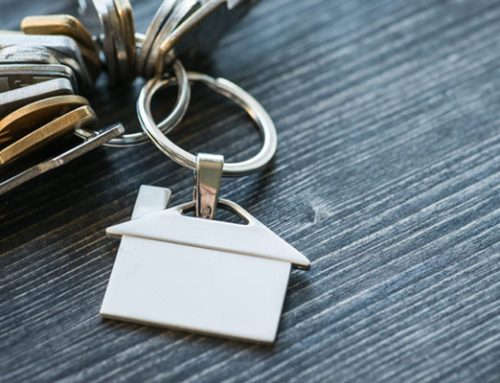
What’s the real cost of owning an investment property?
Investing in residential property is a proven and trusted method of generating extra income and setting yourself up for a comfortable retirement – but it must be done right. Many investors come unstuck because they fail to account for all the potential costs that can impact their investment yield. Being aware of these costs and budgeting for them, where possible, can determine how successfully your investment performs.
Here, we’ve detailed some of the costs you might encounter when you decide to invest in residential property.
Set-up costs
1.Mortgage fees: Depending on who you choose as your lender and how large your loan is, you may be required to pay a loan establishment fee, a documentation fee or a low equity fee. Often, these costs can be negotiable, or you can add them to the loan. Mortgage set-up costs differ depending on who you borrow from, how much you borrow, and the type of loan, so speak to your lender to find out more.
2.Conveyancing fees: It is customary to employ a lawyer to manage the process of transferring the ownership of a property – this is called conveyancing. The lawyer will ensure all the required documentation is completed and processed correctly. Conveyancing fees normally cost between $800 and $1500.
3.LIM report: A Land Information Memorandum (LIM) is a report that contains all the information the local council holds on the property you want to purchase. It normally includes information about zoning, natural risks that might impact the property (like flooding or erosion), property rates, scheduled works that might affect the property, any resource or building consents issued, and whether any buildings or trees on the property are protected/heritage. Costs vary depending on the area and how urgently you need the report but generally fall between $250 – $400.
4.Valuation: Most lenders require a registered valuation as part of the loan approval process. A registered valuer will charge between $500 – $800 to assess your property and prepare a report.
5.Inspections: Because properties can hide a multitude of potentially expensive problems, it’s advisable to get a specialist to perform a pre-purchase inspection. This is a visual check of the property for issues like old wiring, leaking pipes, structural problems, rusting roofs, etc. If a property has plaster cladding, you may also decide to get thermal imaging or moisture testing done, to ensure it doesn’t suffer from “leaky building syndrome”. Other tests can be done to check for issues like methamphetamine contamination, insects and asbestos. A standard home inspection is normally around $400-$500.
6.Insulation: From 1 July 2019, it will be compulsory for all rental properties to have under-floor and ceiling insulation anywhere that it can be practically installed. Failure to properly insulate your property could result in a fine of up to $4000, payable to your tenant. Installing insulation in the ceilings and floors of a standard three-bedroom home should cost you between $2500 – $4500.
Ongoing costs
7.Insurance: It’s likely that your lender will require you to insure your investment property as a condition of your mortgage. Most insurance companies offer cover specially designed for landlords that insures against events like sudden accidental damage, hidden gradual damage and legal liability. Some policies even include cover for methamphetamine contamination, loss of rent, and deliberate damage by tenants. While you are responsible for insuring the building, your tenants are responsible for insuring their own contents. Contact your insurer for a quote.
8.Rates: As a landlord, you are responsible for paying the annual rates charges on your investment property. You can find out how much these are by contacting your local council – they are usually available online.
9.Body corporate fees: If your investment property is part of a body corporate, you will be responsible for paying the body corporate fees. The estate agent selling the property will be able to provide you with the relevant body corporate information.
10.Maintenance: One of your responsibilities as a landlord is to regularly inspect the property and maintain or repair anything that wears out or breaks (“fair wear and tear”), like taps or heat pumps. Normally, you are also required to prune and maintain trees and shrubs and remove the cuttings, although your tenant is responsible for mowing the lawn. It’s a good idea to maintain a contingency fund to cover unexpected breakages that are not the tenant’s fault.
11.Property management: Some landlords prefer to hire a property manager to look after the day-to-day running of their rental and make sure their tenants are responsible and happy. Most property managers charge a percentage of the weekly rent (normally between 6%-9%) or a flat fee.
12.Issues with tenants: Unfortunately, sometimes tenants don’t live up to their obligations. They may damage your property or fail to pay their rent on time. You may also experience periods where your tenants move out, and you are unable to find suitable new tenants right away, resulting in a loss of rental income. It’s important to factor periods of vacancy into your profit projections.
13.Accountants: Investment properties are subject to their own set of tax rules, and maximising your profit often requires the services of an accountant. They can help you claim business expenses related to the property to minimise the amount of tax you have to pay, as well as making sure you are meeting all your tax obligations. Making mistakes with your tax can result in heavy penalties and ongoing interest charges that can make IRD debts difficult to repay.
The purpose of this article is not to scare you off investing in property, but rather to highlight the need for proper planning so that you choose the right investment and have realistic expectations of your potential yield. We don’t sell investment plans or properties here at SurePlan. Our goal is always to make sure the best financial structure is set up for our clients that suits their life style, and also providing a holistic service around advice, planning and support.
Are you ready to take the next step in your financial journey but not sure where you stand at the moment? Have a look at our free The Great Kiwi Family Financial Road map ebook to see what you could be doing to improve your finances for your next investment.
SurePlan has helped hundreds of Auckland Families think differently about their finances. They provide a holistic financial planning service that takes into account your life and your needs. We are fully independent and offer Authorised Financial Advise along with access to industry experts in insurance, property investment and tax/estate. Book a free consultation with Gareth here.









